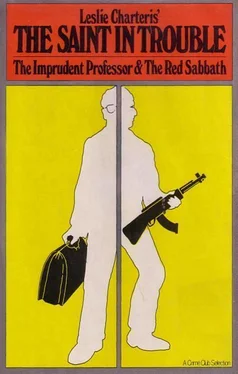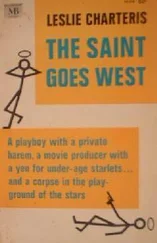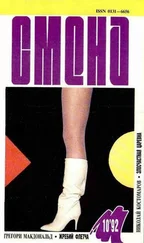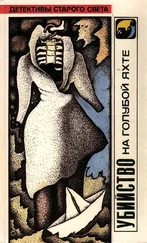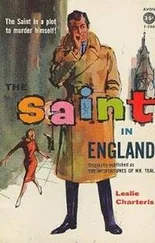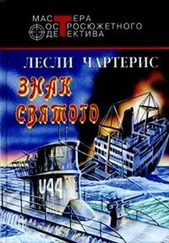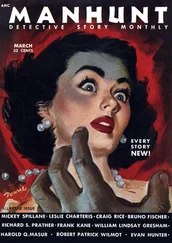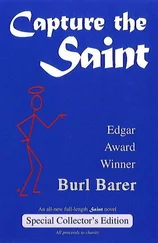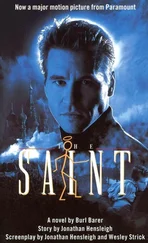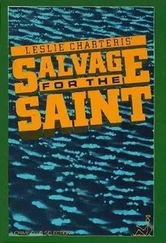“Must’ve been here,” returned the police sergeant, thoughtfully crunching some of the telltale shards of glass on the cobblestones under his feet.
He was clearly nearing retirement age, and the expression on his plump face as he tried ineffectually to peep through the shutter louvres suggested that he was more accustomed to feeling collars than coping with terrorists.
“Sounded quite like a bomb, it did,” he mentioned stolidly.
“I know,” said the Saint. “The theory is that I, being me, have a great many enemies who wish to enrol me in the celestial choir, and this was obviously the work of one of them. Sorry to disappoint you, but it was nothing so sensational. We must have had a small leak in the gas oven. A friend of mine who doesn’t have such a good sniffer went into the kitchen and struck a match, and it went off with a bang. Fortunately, he wasn’t hurt. Just a few broken dishes, and all this glass blown out.”
“I see,” said the sergeant, as if he rather regretted it. “But since there’ll have to be a report, now, would you mind coming around to the station and making a statement?”
“If I can be any help to the Metropolitan Police,” said the Saint resignedly, “nothing is too much trouble. Just let me make my excuses to my guests.”
It was almost two hours before he eventually arrived home again, to find Leila curled up on the settee asleep. Her slender figure was wrapped in his own silk dressing-gown, and she looked so innocent and vulnerable that he found it hard to credit that a little earlier she had been wielding a pistol with the cold professionalism of a seasoned commando.
She awoke with a start at the clink of glass on glass.
“Simon! Well? What happened?”
He settled on the arm of the chair opposite and sipped his brandy before replying.
“I believe the official phrase is ‘helping the police with their enquiries.’ I have been going through the charade of dictating a statement and waiting for it to be typed by some one-fingered truncheon wielder who was as meticulous as if he’d been bidding for a Nobel Prize. I have been signing same and answering a hundred and one questions arising therefrom, all designed to trap me into admitting some kind of guilt or of knowing some guilty person. Of course, I stuck by my gas-leak story, since you and Garvi want to keep the cops out of it.” He took another sip. “How’s Yakovitz?”
“All right. But I ordered him to bed.”
Simon glanced around the room again.
“While you did the housework,” he said. “Thanks for cleaning up the mess, Leila.”
“It was the least I could do. Your beautiful home, wrecked, because of us...”
She stood in front of him, and there was a mistiness in her eyes that he had not expected.
“Simon, I’m sorry about how I have spoken to you sometimes.” Her voice trembled slightly. “But when my work here is finished—”
He drew her close and smothered the rest of her words with a kiss. When their lips finally parted she made no move to leave his embrace.
“When your work here is finished, we’ll have time to talk of many things,” he said.
She was about to speak again, but he placed a finger against her lips.
“But not now,” he said. “And the business talk will keep till breakfast. Go on up to bed, and I’ll doss down here.”
Despite the strain of the long night, the Saint was still the first to rise. He had long ago cultivated the ability to keep firing with only a minimum of sleep. He had slumbered peacefully and awakened refreshed at the reveille of his own mental alarm clock, to shower and change his clothes before he roused the others.
Leila came down to the invigorating aroma of percolating coffee and sizzling bacon. Yakovitz followed more slowly, but his step was steady and his eyes clear.
“I hope my heathen habits won’t spoil your appetites,” Simon apologised as he seated them. “But you can still eat the eggs.”
Leila had changed back to the fawn tailored suit she had worn when they met, and its faintly military style helped her return to outward impersonality.
“I telephoned Colonel Garvi and told him everything that has happened,” she stated, as if making a formal report.
“And has he any jolly new ideas?” asked the Saint.
Leila nodded.
“Yes. As soon as we have Hakim we are to take him to another base, a house the embassy owns near Epping. I have written down the address.”
“Why?”
She looked surprised at the question.
“For interrogation,” she answered. “We can’t ask you to let us keep him here, and the embassy is not suitable.”
The Saint shrugged.
“What you do with him is your affair,” he said callously. “My job finishes when we catch him. After that, I’m going to have a few scalps of my own to collect.”
“Simon, how do you think Masrouf knew where to find us?”
The Saint buttered another slice of toast.
“That’s been puzzling me too. The only answer I can think of is that he did an about — turn after we scared him off yesterday, and followed us when we left the flat. I’m afraid it didn’t occur to me that he might have got back on our tail so quickly. For which I’ve been taught a damn good lesson.”
“Colonel Garvi said I should tell you that of course we shall pay for the damage.”
“I’m sure you will,” said the Saint. “But you can’t write a cheque for everything I’m holding against the Red Sabbath. Never mind that for now. We’ve got a busy day ahead.”
“What is your plan?” Leila asked.
“We keep close to Yasmina. My guess is that it’ll be her job to make the contact with Parton, but that Hakim won’t be very far away. So eat up, or we’ll be late for school.”
The Hirondel had survived the explosion with no more serious damage than a few scratches in the paintwork caused by flying glass. They drove east, following a similar route to the one they had taken the night before. They passed through White-chapel into Stepney and stopped at last opposite the gates of a modem primary school. The only other vehicles in the road were a yellow van parked a few yards behind a small coach.
Yasmina stood by the gates shepherding children into the coach. In the yellow van, a man sat low in the driving seat with his face buried in the racing pages of a morning newspaper.
The Saint turned to Leila.
“Do you know the phone number of that house at Epping?”
She told him, and he scribbled a few words on a visiting card which he handed to Yakovitz.
“Walk over the road,” he said, “and drop this through the driver’s window of that van as you pass. Then come back.”
Yakovitz obeyed without asking for a reason or even reading the card.
As they watched the maneuver being completed, Leila asked: “Who is in that van?”
“That is Harry-the-Nose,” said the Saint. “Last night I told him to follow Yasmina and report back everything she did, but that was before I found out that the drop was to be today. Still, there’s no reason why he can’t follow her too as a sort of double insurance, in case we get separated for any reason. I gave him the phone number in Epping in case I have to go there with you.”
Yakovitz climbed back into the car as the last of the children boarded the coach. As it moved off, the Saint slid smoothly in behind it, keeping an eye on the rear view mirror to be certain that the yellow van had joined the convoy.
They headed for the Commercial Road and back towards the City, edging their way slowly through the crawling traffic. They skirted the Tower and swung left over London Bridge, turning sharply across to the right as soon as the south bank of the river was reached. As the coach pulled into the kerb beside Southwark Cathedral, the Saint drove on and stopped out of sight around the next corner.
Читать дальше
